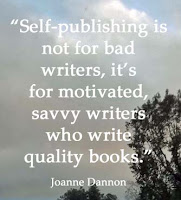Following up on recent posts, we’re encouraging you to give an early edition of your memoir as a Christmas gift to family and close friends—even if you’ve written only a few vignettes. Give them what you have completed and promise them a completed memoir soon.
Click on these links to recent posts covering your:
Today we’ll look at your publishing options—BUT FIRST: Before you publish, edit your vignettes thoroughly.
Check for errors in grammar, punctuation, redundancy, unnatural dialogue, and confusing passages. Rearrange sentences or paragraphs if they’re not in the right order.
You’ll find a lot of help in Self-Editing Basics: 10 Simple Ways to Edit Your Own Book. The first seven points are relevant for you now. The whole list will be relevant in the future when you do a thorough edit before publishing your completed memoir.
Click on Editing Checklist for Writers for help with common errors writers often make in their first drafts.
Make changes to your manuscript and set it aside for a week or so. When you get it out again, read it aloud. Your ear will catch awkward spots your eyes missed earlier—like clumsy words, pacing, and sentence structures.
Below you’ll find a few options for publishing your mini-memoir, your early edition:
- Your local print shop or office supplies store can publish a spiral-bound copy.
- Print your stories on your own printer and put them in a three-ring binder.
- Make a chapbook. Click on How to Make A Chapbook—An Illustrated, Step-by-Step Guide.
- Publish your book through a company like Blurb. I hesitate to recommend businesses, but I have published a couple of small books (with both text and color photos) with Blurb. Click on Trade Books at this link.
You still have nine weeks to put together a mini-memoir for Christmas gifts. You can do this!
Let us know if you’re making an early edition
of your memoir for Christmas.
We want to congratulate you
and celebrate with you.
Leave a comment below
or at SM 101’s Facebook Page.






